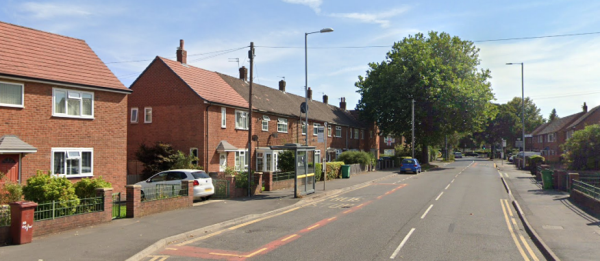Stewart v Glaze [2009] EWHC 704 (QB)
 In the early hours of the 25th September 2004, Mr Stewart was involved in a collision with a car driven by Mr Glaze. Mr Stewart suffered a life-changing brain injury as a result.
In the early hours of the 25th September 2004, Mr Stewart was involved in a collision with a car driven by Mr Glaze. Mr Stewart suffered a life-changing brain injury as a result.
Mr Stewart and a friend had just got off a bus and decided to sit down in the bus shelter to chat before heading home. They were both fairly intoxicated as they had just returned from a night of drinking.
Mr Glaze, who was driving home, knew the road well and was being watchful for any drunken late-night stragglers, as he knew this was an area where people who had been drinking might be. From a distance, Mr Glaze noticed two people sitting in the bus shelter. However, he did not consider them to be a hazard as he was under the impression they were simply waiting for a bus.
The two friends were chatting when suddenly Mr Stewart stood up, walked from the bus shelter out onto the road and was struck by Mr Glaze’s car. Mr Glaze stopped immediately and ran to Mr Stewart, whilst calling 999. An ambulance arrived on the scene a short while after and Mr Stewart was taken to hospital.
Subsequently, the police carried out an investigation into the circumstances of the accident. The conclusions in the report recommended that no proceedings should be brought against the driver, Mr Glaze. The report summary simply said: “Drunken male staggered out in front of car brought about by significant amount of intoxication; recommendation – no further action; pedestrian at fault.”
Regardless of the Police report, Mr Stewart still brought an action for damages against Mr Glaze. He argued that Mr Glaze had been negligent in the way he had been driving and argued that he should have braked earlier, claiming it would have led to him sustaining less severe injuries.
The only eye-witnesses to the incident were Mr Stewart's friend, who admitted he was intoxicated at the time, and Mr Glaze. Both parties disagreed on the circumstances of the incident. The friend claimed that Mr Stewart had walked out onto the road at a 90-degree angle to the kerb whilst Mr Glaze claimed that Mr Stewart had run out at a 45-degree angle to the kerb and straight towards his car.
Both Mr Stewart and Mr Glaze called on accident reconstruction experts to help the court decipher which version of events was likely to be the correct one.
The evidence of the accident experts reached the same conclusion which was that Mr Stewart would have been at an angle of around 45 degrees towards the car when he was struck, supporting Mr Glaze’s claim.
The second disagreement over whether Mr Stewart had run or walked onto the road was more controversial, particularly as the evidence provided by each accident reconstruction expert was seen to be inconclusive. The court subsequently referred to the fact that Mr Stewart’s friend was, by his own admission, drunk at the time and was therefore a less reliable witness than Mr Glaze. In addition, Mr Glaze had been right about several other matters, such as his speed and the angle at which he had been approached by Mr Stewart. Therefore, on the balance of probabilities, it was considered by the Court that Mr Stewart had indeed run towards the road
In conclusion, the Court decided that Mr Glaze had not been negligent in his driving. Experts determined that Mr Glaze had between 0.5 - 1 sec in which to brake. This was held to be an insufficient amount of time for him to react to a drunk pedestrian running out onto the road and towards him. The court also said that Mr Glaze’s driving did not fall below the standard of a reasonable driver. His speed was estimated at 31mph in a 30mph zone, and he had been driving with due care and attention. It was also found to be perfectly acceptable for Mr Glaze to have assumed that the two friends were simply waiting for a bus and that when Mr Stewart had stood up, it appeared that he was simply checking for a bus.
In addition, Mr Stewart's accident expert claimed that if Mr Glaze had braked earlier, the injuries sustained would not have been as serious. The court rejected this on the basis that only a medical professional could make such a judgement. The court again highlighted the extremely short period of time which Mr Glaze had to react and ruled that there was no evidence to suggest that if Mr Glaze had braked sooner, his injuries would not have been as severe.
Based upon all the evidence provided, Mr Stewart’s action for damages was rejected by the court.
CASE DISMISSED
In its concluding statement, the court stated that had if it had been decided Mr Glaze to be at fault, then Mr Stewart's damages award would have been reduced by around 75% to reflect the negligence of Mr Stewart’s actions.
The full decision can be viewed here.